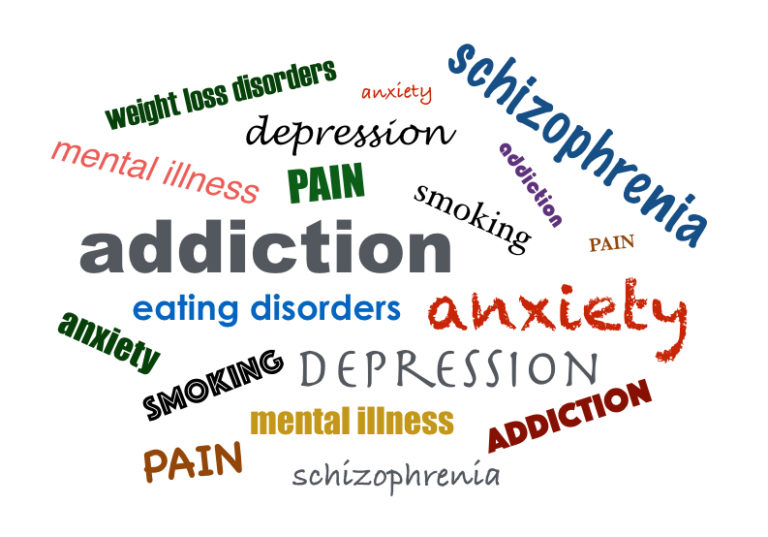
Claims abound about the benefits of mindfulness in promoting human health and well-being, making it hard for people to distinguish between hype and hard science. Over the last two decades, hundreds of trials have explored the impact of meditation and mindfulness on mental health in individual studies, but researchers rarely undertake the challenge of investigating what these findings reveal across the field as a whole.
One exception is Simon Goldberg. An assistant professor in the Department of Counseling Psychology at the University of Wisconsin and affiliate faculty member at the Center for Healthy Minds, Goldberg started meditating in college and later pursued a doctorate to better understand the psychotherapeutic benefits of mindfulness. His most recent research sought to identify the larger lessons hidden within mountains of data.
In 2015, Mind & Life awarded Goldberg a Francisco J. Varela Research Grant to explore the efficacy of mindfulness-based interventions on patients across a range of psychiatric disorders. “It seemed like in the popular eye, mindfulness was still viewed as an ‘alternative’ therapy,” he says. “I was curious if we did a rigorous test, how mindfulness-based interventions would stack up against frontline, evidence-based psychotherapies.”
Goldberg and a team of Seattle-based researchers set out on an 18-month quest to analyze the results of many previous studies to see what larger conclusions could be drawn. While painstaking to complete, such meta-analyses are great for asking macro-level questions, explains Goldberg. “When you combine results from different studies, you can get more reliable estimates than from individual studies,” he adds.
“I was curious if we did a rigorous test, how mindfulness-based interventions would stack up against frontline, evidence-based psychotherapies.”
The team examined findings from 142 clinical trials conducted between 2000–2016 and involving over 12,000 participants. To be included, studies needed to have mindfulness meditation as a core component of the intervention and include at-home meditation practice. The team’s meta-analysis was limited to psychiatric conditions on the Society for Clinical Psychology’s list of disorders that have evidence-based treatments. Much of the available data focused on depression, anxiety, pain conditions, smoking, and addiction; however, studies involving serious mental illnesses (e.g., schizophrenia spectrum disorders) and weight loss/eating disorders were also analyzed.
Other study criteria included a focus on randomized controlled trials (RCTs), whereby participants are randomly assigned to either the group receiving the mindfulness intervention, or a control group. Randomization is important in research to minimize pre-existing differences between people in the mindfulness and control groups. For example, if given the chance to self-select into intervention groups, participants who are interested, motivated, or pre-disposed to practice mindfulness would be more likely to join the mindfulness group. When outcomes are analyzed, this scenario can make it seem like mindfulness itself is effective when, in fact, the individual’s motivation was a key factor.
Another important emphasis in this meta-analysis was the nature of control groups used in the individual studies. In a research study, what happens for the controls is actually quite important, as it provides the comparison to measure mindfulness against. Control conditions can range from no treatment at all to similar interventions that lack the mindfulness component. These latter interventions are referred to as “active control” groups and are critical as a check on whether non-specific elements of mindfulness programs, like social support, might be the reason for any benefits that a group experiences.
“Active controls are important because there are lots of reasons people’s symptom scores may change over time,” explains Goldberg, pointing to the possibility of these non-specific effects. “Having a control condition helps demonstrate the effectiveness of your therapy,” he adds.
What did the team discover? The meta-analysis, summarized in Clinical Psychology Review, found that mindfulness-based interventions were equivalent to existing evidence-based treatments, and superior to other comparisons (e.g., no treatment and active controls) in several psychiatric conditions. While not all comparisons were possible for all disorders, the strongest pattern of evidence was seen in the treatment of depression, pain, smoking, and addiction.
The finding that mindfulness was equally effective as standard treatments suggests that mindfulness be considered among various psychotherapeutic options (e.g., cognitive behavioral therapy, psychodynamic therapy). And the fact that mindfulness outperformed even active control groups suggests there may be something to the practice itself that’s causing benefits.
What might that be? Goldberg surmises that mindfulness techniques are effective because they target emotional and cognitive mechanisms—like rumination—that are common across various psychiatric conditions. “As people develop mindfulness skills, often through taking up meditation, they’re better equipped to break the habit of worrying and being fixated on a particular thought,” he says.
“As people develop mindfulness skills, often through taking up meditation, they’re better equipped to break the habit of worrying and being fixated on a particular thought.”
Meta-analyses are powerful as big picture summaries of research in a given field. Yet there are drawbacks, too. One is that it can be hard to draw finer-grain conclusions about individual populations or disorders. Another pitfall is the issue of publication bias, common across many scientific fields. Goldberg cautions that because studies with “negative findings” (e.g., no beneficial effect of mindfulness) are harder to get published, you can end up with a positive bias in the literature as a whole. He points to a movement underway to publish papers with negative findings as long as they’re conducted in a rigorous way. Goldberg’s meta-analysis used statistical methods to try to assess publication bias, and his conclusions take such bias into account.
While these findings underscore the benefits of mindfulness for addressing psychiatric disorders, questions remain. Among them are how much meditative practice is needed to achieve positive effects, and whether individuals with particular characteristics are more likely to benefit.
By validating the effectiveness of mindfulness-based interventions, Goldberg hopes to make the case to healthcare decision-makers that such therapies should be taken seriously. Yet even with a more rigorous evidence base, decision-makers face more basic questions like how to equip providers to deliver mindfulness training and ensure quality control of the process.
Goldberg acknowledges that mindfulness may not be not for everyone—but those who are interested in pursuing such approaches for depression and other mental health challenges may do so, in consultation with their doctor, knowing scientific evidence supports their decision.
To learn more, see Mindfulness-based interventions for psychiatric disorders: A systematic review and meta-analysis. An open-access version is available on MindRxiv.

Simon Goldberg, PhD, is an assistant professor in the Department of Counseling Psychology and affiliate faculty at the Center for Healthy Minds. Simon uses tools drawn from psychotherapy research to better understand the therapeutic processes and outcomes of mindfulness and meditation-based interventions. He received a Varela Grant from Mind & Life in 2015.

